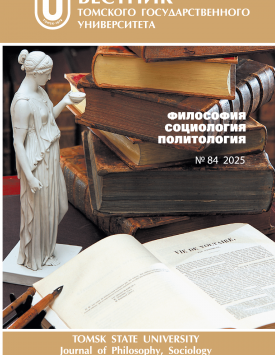Communication problems of current political education
Modern political education faces a number of problems, including the crisis of meaning generation and deconstruction of the political sign, ideological transformations under the influence of digitalization, the gap between curricula and dynamic political reality. From the point of view of the cultural-semiotic approach, the problem of political education lies in the deconstruction of political signs, leading to their meaninglessness. As a result, communication loses its semantic load, despite the increase in the number of information exchanges. Yuri Lotman emphasizes the role of texts as “meaning-generating devices”. In political education, such texts are ideas about the past, present and future. The construction and transmission of these texts are associated with a number of didactic difficulties. In addition, modern political communication is networked and non-linear in nature, which gives rise to new challenges: loss of trust in experts and traditional sources of information, fragmentation of knowledge and values, inability of education to produce a creative audience ready for independent meaning generation. Digitalization and social media play a significant role in political education. Artificial intelligence and algorithms actively influence the agenda and the formation of public opinion, acting as gatekeepers and content makers, and political communication takes the form of digital rituals. The effect of echo chambers and information bubbles contributes to the fragmentation of worldviews, although trends and advertising can create a common communicative experience. Nevertheless, the digital environment forms an unstable and dynamic picture of the political world, which creates a threat of polarization of society and reduces the deliberative potential of democracy. Thus, ideological deconsolidation can be considered as part of political socialization and education. Institutional political education in Russia is implemented at the universal (schools, non-core faculties, etc.) and professional (university political science programs) levels. At the universal level, political education is characterized by isolation from current politics, dogmatism, and lack of reflection, which gives rise to mistrust on the part of students, fragmentation of knowledge, and cognitive poverty. Professional political education is complicated by the imbalance of interests of the state, students, and employers, as well as by the insufficient substantive value of educational programs. The authors declare no conflicts of interests.
Keywords
political education, political communication, semiotics, digitalization, professional education, political scienceAuthors
| Name | Organization | |
| Shcherbinina Nina G. | Tomsk State University | sapfir.19@mail.ru |
| Krasnoperov Anton Yu. | Tomsk State University | krasnopyorov.anton@gmail.com |
| Avanesova Elena G. | Tomsk State University | avanesovafsf@yandex.ru |
References

Communication problems of current political education | Tomsk State University Journal of Philosophy, Sociology and Political Science. 2025. № 84. DOI: 10.17223/1998863X/84/22
